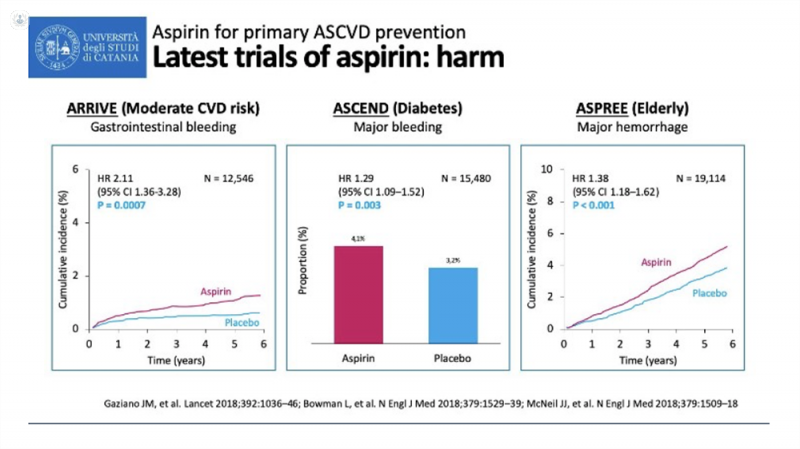Does the daily use of aspirin really prevent a heart attack or stroke?
Written in association with:It is a common belief that taking a low-dose aspirin a day can help ward off a heart attack or stroke by making your blood thinner and preventing it from clotting. But how true is this, and does it work for everyone? Dr Iqbal Malik, an award-winning London-based cardiologist, is here to explain more.

Can aspirin taken every day prevent heart attacks and strokes?
Aspirin is a blood thinner. Thus, there are upsides and downsides to using it. We have to balance the bleeding risk versus the benefit in preventing heart attacks and strokes, both of which are usually related to small blood clots forming in the blood vessels.
If you have never had a heart attack or stroke, your risk of having one is lower than if you have already had one. You might still benefit from aspirin as your overall risk - for example, if you were a smoker, had diabetes and high blood pressure and were overweight - might mean that the benefit out-weighted the bleeding risk from taking aspirin. The problem is that some of the risk factors for heart attack and stroke are the same as for increasing your bleeding risk on aspirin.
What does recent research show?
The research on aspirin in preventing trouble in people who have not had a heart attack or stroke before is difficult to summarise. The evidence base is not strong and the benefit is likely to be small.

All the trial data suggests in these graphs that preventing your first heart attack or stroke with aspirin actually does not work. In fact, your bleeding risk will go up. Only randomised trials can say if, in your type of situation, aspirin would really do more good than harm.

If you did want to take a tablet to prevent a heart attack or stroke, then a statin or cholesterol-lowering tablet is safer and has more evidence behind it.
What are the possible dangers of taking aspirin often if you don’t have heart disease?
As before mentioned, aspirin is a blood thinner so it acts to make platelets - the blood cells involved in forming a clot when you bleed - less sticky. This means they won't “hold hands” and stick together, which can lead to skin bruising and nose bleeds.
In addition, aspirin can irritate the lining of the stomach and cause the gut to bleed. This can be dramatic, causing you to vomit blood or produce blood from the back passage. It can also be more subtle causing anaemia and making you feel tired out without obvious major blood loss.
Can aspirin help people who have already had a stroke or heart attack?
In patients who have had a proven heart attack or stroke, then the enemy is the clot. Therefore, we often use antiplatelet drugs to stop blood clotting. They act to make platelets less sticky. Aspirin in combination with other agents, such as clopidogrel or ticagrelor, is used after a heart attack and coronary stents.
After a stroke, aspirin is often seen as not strong enough, so clopidogrel is used more often. If the stroke is related to atrial fibrillation, then neither aspirin nor clopidogrel is strong enough, so agents such as warfarin, rivaroxaban, edoxaban, dabigatran, and apixaban are used.
Instead of aspirin, what do you recommend to prevent cardiovascular disease?
If a patient has had a heart attack or stroke, then they should take the recommended antiplatelet drug, which may be aspirin, clopidogrel, ticagrelor or a combination of them.
If they have not had a previous event, then I suggest reducing the risk in other ways, such as by losing weight, controlling blood pressure and diet, stopping smoking and of course, considering lowering their cholesterol with a statin. Statins are well tolerated in the vast majority of people.
Summary
The risk of bleeding goes up with aspirin and the risk of heart attack and stroke goes down. The net clinical benefit becomes SMALL in most patients who have NOT had a vascular event.
If you are worried about your heart health, you should make an appointment with consultant cardiologist Dr Iqbal Malik. Go to his Top Doctors profile and check his availability.


